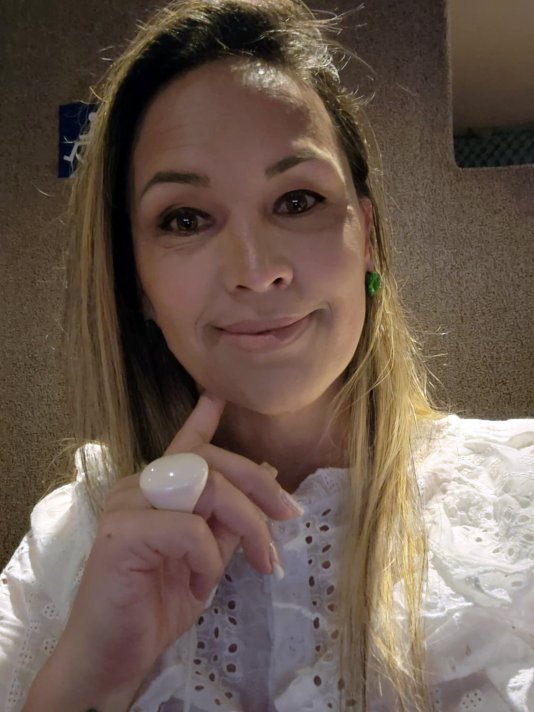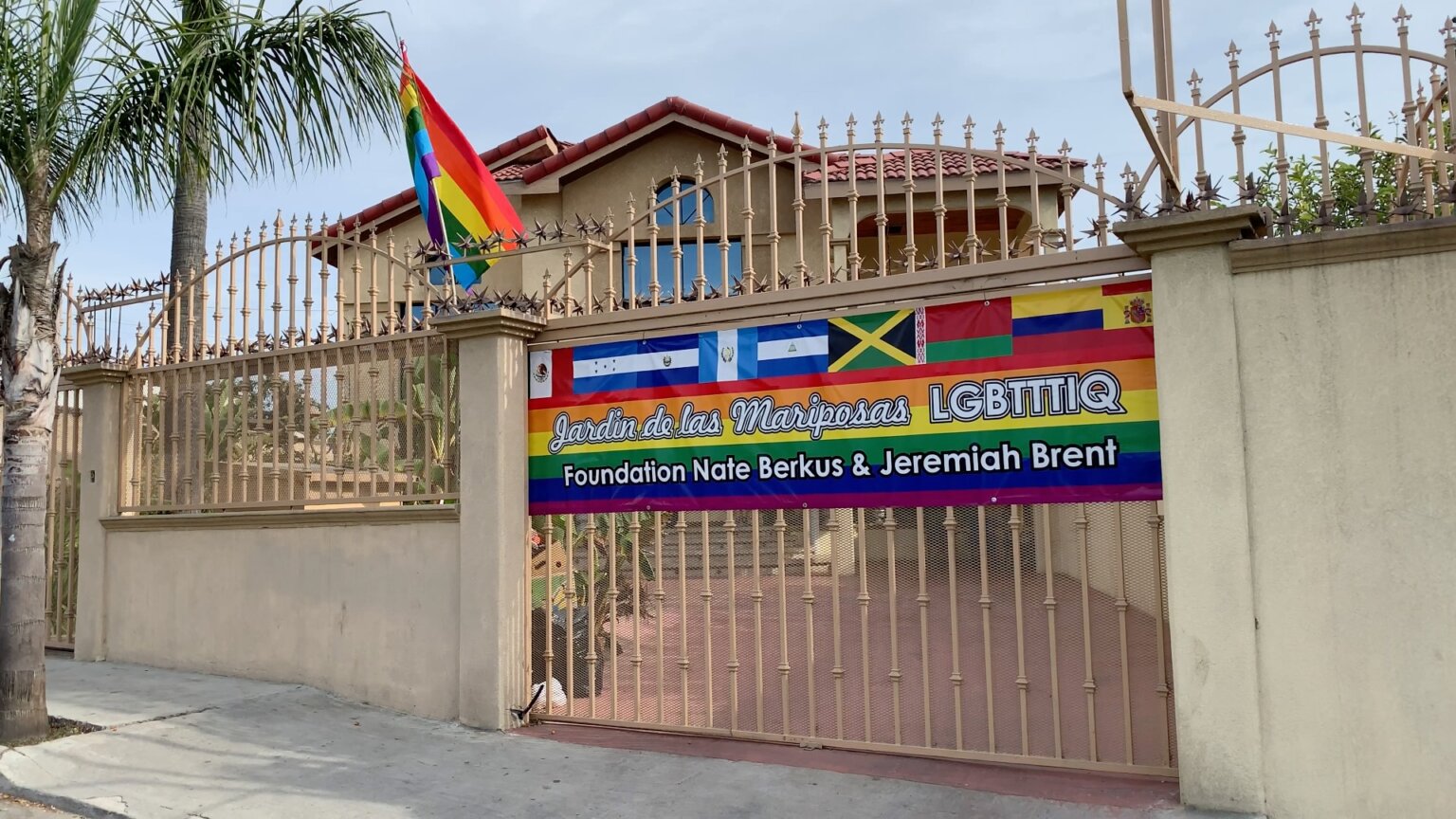- About
- Topics
- Picks
- Audio
- Story
- In-Depth
- Opinion
- News
- Donate
- Signup for our newsletterOur Editors' Best Picks.Send
Read, Debate: Engage.
| December 01, 2022 | |
|---|---|
| topic: | LGBT Rights |
| tags: | #Brazil, #trans rights, #LGBTQ+ |
| located: | Brazil |
| by: | Ellen Nemitz |
Despite the defeat of Brazil's current president Jair Bolsonaro, whose mandate will end on 31 December, far-right parties and politicians have scored significant victories in the parliamentary elections held on 2 October.
Against this backdrop, historically marginalised and oppressed populations have been working to make their voices heard in politics and other decision-making arenas.
In the same round of elections that saw prominent conservative figures catapulted to roles in the Chamber of Deputies and the Senate, historic victories were also secured by indigenous, black and trans candidates. Among the newly-elected trans public officials are Duda Salabert, who will become federal deputy for the State of Minas Gerais, Erika Hilton, who will be occupying the same role in São Paulo, Linda Brasil, who will be serving in the State Chambers of Sergipe, Dani Balbi in Rio de Janeiro and Carolina Iara in São Paulo.
In the state of Rio de Janeiro, Céu Cavalcanti became the first trans woman to preside over a professional regulation body in Brazil - the Regional Psychology Council.
In Paraná, human rights activist Karollyne Nascimento has since 2021 been serving as the head of the Ombudsman's Office for the Public Defender's Office - an office tasked with guaranteeing rights and access to justice for vulnerable populations.
Karol, as she is known, also occupies several other public roles in institutions such as the Permanent Council for Human Rights of Paraná, the Municipal Health and Women's Rights Council of Curitiba (Paraná's capital city) and the LGBTI Committee of the Secretary of Justice, Family and Work, among others.
In an exclusive interview with FairPlanet, Karol analysed the slow but significant rise of trans people in public and decision-making spaces in Brazil, the numerous challenges they still face in exercising their rights and her hopes for the coming years: "I dream of the day when we can be who we really are, without being questioned. That we can walk with pride in being who we are, in occupying spaces that are for all people, that equity is a word that really reverberates for all people."
FairPlanet: You currently hold the position of ombudsman-general of the public defender's office in the Brazilian state of Paraná. Tell us a bit about the significance of this role.
Karollyne Nascimento: I was elected in August 2021 for a two-year term with the possibility of reappointment for another two years.
The ombudsman is an external body, but linked to the public defender's office. The ombudsman is elected by civil society to represent it within the institution.
The ombudsman's office is responsible for receiving complaints and other issues that civil society deems relevant to influence the work of the public defender's office in the actions and the way in which the services of the public defender's office are conducted.
During this time, what were the most salient demands made to your office?
The greatest demand is the lack of knowledge about the ways to access the services offered by the institution. People are still unaware about the work done by the public defender's office, too.
So, in the ombudsman's office, what we are trying to do is to bring the defender's office closer to these people, trying to make the service actually reach those whom the defender's office was designed and intended for, which is the most vulnerable people, so that the access to Justice can actually reach these people, building a bridge between the Justice System and civil society.
You have been a long-time advocate of trans rights, having had important stints in non-governmental organisations. Can you tell us about your journey up until you took on this important position in the Justice System?
As an activist, I always liked the internal work, I didn't really like to show up. Due to some circumstances, I ended up taking on the position of coordinator of the Marcela Prado Transgroup [an NGO working to protect trans rights], which ended up giving me visibility, a projection in this militancy scenario.
When the edict for the public defender's ombudsman came up, I was called to compose a list of women, as the idea was to elect a woman.
We know how difficult it is for women like me to reach decision-making spaces, with a certain power. Being here was a consequence of the work that ended up putting me in this place.
You identify as a trans woman. Yet some trans individuals object to having to add the title 'trans' to their gender identity, emphasising that trans men and women are simply men and women. Can you talk a bit about the dichotomy between needing to socially present as a trans person and wanting to be recognised simply as a woman?
In our case, self-identification or self-declaration is a safety factor, given the violence we face.
In the world we live in, this is still necessary so that people do not think that we are trying to go through something that we are not, which somehow gives them "permission" to use violence against our bodies.
If I say I'm a woman, there's always going to be someone questioning something like, "But, what about that voice? And those broad shoulders?" I'll always be questioned! When I declare myself, I save myself, I take a thousand steps forward, so I don't have to go through these situations.
But it's also about recognising our history, our trajectory, because I was not born a cisgender woman and I don't even want to be recognised as a cisgender woman, because I'm not. I am the woman I built. [Above that] I am a person, a citizen. Denying this is also an oppression on my existence.
It was thanks to my past that I got where I am, that I am who I am today.
In the October 2022 elections we observed a slow advance of trans people occupying public spaces, with the election of two federal and three state deputies. How do you evaluate this development?
For these questions I always return to the thought: who is not seen is not remembered. So, [the number of representatives] may be low, but at least we are being seen.
The representation will eventually increase. This is a beginning, and everything has to have a beginning. Most of the time, [the trans] population has no interest in these agendas and issues. [Those who have reached these positions] are usually the girls who underwent their transitions later or who managed to have more education. Because girls who have been in prostitution since they were 13, 14 years old, they have no interest in discussing politics.
And then we make some correlations with the life expectancy of these girls [in Brazil, the life expectancy of a trans woman is only 35 years old due to violence], where these girls live, who they live with, how they survive... factors that end up influencing this lack of interest in politics.
So, these are small steps, which are slowly going forward. It may sound small for some, but for us it is already a great advance.
"The representation will eventually increase. This is a beginning."
Have you been observing similar advances in other fields?
Yes. Until mid-2012, when the employability [of trans people] began to be discussed, I wonder who could imagine that today we would have trans lawyers, even a president of a psychology council [Céu Cavalcanti, elected in 2022 in Rio de Janeiro]. We didn't dream of it!
These were spaces never thought of to accommodate this population. What society gave us most of the time were the corners, the streets.
How does the presence of trans women in politics and other decision-making spaces contribute to the uplifting of trans communities and their rights?
The ascension [of trans people in politics] is very welcome. Our problem is that we are often unable to actually act within these decision-making spaces. We have Duda [Salabert, councillor for the city of Belo Horizonte and now a federal deputy elected by the State of Minas Gerais], the difficulty she has to practise her mandate, the difficulty she has to propose the agendas...
We also have Erika Malunguinho and Erika Hilton, in São Paulo, people who have difficulty in practising their mandates, to actually work.
These spaces were not designed to welcome us. So I think there is still a long way to go. At this moment, the priority is to bring visibility to this population, to show that we also have culture, that we are also people who know how to talk, who know how to dialogue, who can also contribute to many decision-making which influence the population, the advance of public policies.
So [the presence of these women in politics] is already an advance, a visibility.
Has there been any public mobilisation to combat transphobic sentiments and anti-trans violence?
I think there has been more discussion, but there is still great difficulty in accessing these [decision-making] spaces. I often cannot understand what the difficulty is [for society to welcome the trans population].
I remember that once I went to assist a company that was hiring a trans man and their concern was how they were going to manage the restroom issue, which is a simple issue.
I also observed the difficulty of getting sponsorship for these causes, and companies that did not allow linking the brand to these [gender] identities. Companies are very afraid of boycotts and negative repercussions. How many advertising campaigns by big brands are starring trans women? We have been fighting for this, to show that we are also capable - we just need the opportunity to speak up, to be heard.
It seems that there is a gap between rights officially acquired by trans people, such as proper identification and the primary and secondary surgeries, which are theoretically offered by the public health system, and the rights actually granted in reality. Would you agree?
Yes. There is a huge gap. Many cities do not have a reference centre for transgenitalisation or secondary surgeries, such as mastectomy, a breast implant or removal of the Adam's apple. It is a right that has been guaranteed, but is not carried out.
Our rights are very fragile, because they are not legislated, they are judicial understandings [most often established by the Supreme Court]. We cannot even call it a public policy, because it was not a widely debated decision. And that's very easy to overthrow. As long as this is not debated within the legislative houses, it will remain as it is.
How does the situation for trans people in Brazil compare to that of trans people elsewhere in the world?
Our neighbour, Argentina, has policies for the trans population which are unimaginable here in Brazil. In the United Kingdom, when the trans person goes to a health appointment, if the professional identifies that the patient does not have her name correctly [based on their gender of identification], he or she forwards the patient to the rectification or use of the [preferred pronoun].
Here, if we do not introduce ourselves by our social name, we are still called by our civil name [attributed at birth], without worrying about the recognition of our identity.
So, some countries are well advanced in the recognition of this agenda, and here in Brazil it will take time to advance because of conservatism, it is a very religious and conservative country.
Image by Matheus Farias.
By copying the embed code below, you agree to adhere to our republishing guidelines.

